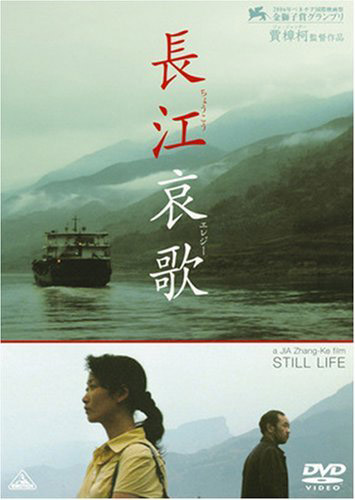映画『罪の手ざわり』のジャ・ジャンクー監督のインタビュー記事で目にした「take place」の意味とは?
昨年のカンヌ国際映画祭(Festival de Cannes)で脚本賞を受賞した映画『罪の手ざわり(A Touch of Sin)』(日本では2014年公開予定)が、地元の映画館で1週間限定で公開されていると聞き、ジェガーさんとぎりぎり行ってきました。
これがめちゃめちゃ味わい深い作品で、観終わった直後は何とも言えない複雑な気分だったのに、時間が経つに連れてじわじわと映画の「すごさ」が身にしみてきました。さすがカンヌ国際映画祭で脚本賞を取っただけあって、構成が本当に素晴らしいです。
しかも、オープニングで “オフィス北野 Office Kitano” と表示されてびっくりしたので、帰宅後映画について調べてみると、なんとこの映画、日中合作映画でした。
調べている最中にニューヨーク・タイムズ紙(The New York Times @nytimes)によるジャ・ジャンクー(Jia Zhang-ke)監督のインタビュー記事を見つけたので、読んでみたところ、”take place” という表現が何度か登場しました。
What kinds of changes to the censorship process have taken place in the last 10 or 15 years?
via Q. and A.: Jia Zhangke on His New Film ‘A Touch of Sin,’ Part 2 – NYTimes.com
Why do you say these changes took place starting in 2004?
via Q. and A.: Jia Zhangke on His New Film ‘A Touch of Sin,’ Part 2 – NYTimes.com
I’m preparing to make a spy movie after this martial arts film. It’s set from 1949 to 1966, the start of the Cultural Revolution. It’s a spy story that takes place in Hong Kong.
via Q. and A.: Jia Zhangke on His New Film ‘A Touch of Sin,’ Part 2 – NYTimes.com
ポイント
“take place” は、会話でも文章でもよく使われています。
take place: to happen
(私は最初、”happen” ばかり使っていましたが、”take place” も本当によく使われています!)
というわけで、一文目は「検閲過程には過去10〜15年の間にどういう変化があったのでしょう?」、2文目は「どうしてこれらの変化が2004年に起こり始めたのでしょう?」、そして3文目は「この格闘技映画の後に、今スパイ映画の準備をしています。文化大革命の頃の1949年〜1966年が舞台です。香港で起こるスパイの物語です。」と言っていたのでした。
補足
というわけで、ジャ・ジャンクー監督のインタビュー記事で私が最も興味深かったのが、検閲のことでした。
彼の作品は海外での評価がめちゃめちゃ高く、映画『長江哀歌(Still Life)』も2006年にベニス国際映画祭(Venice Film Festival)で金獅子賞(Golden Lion)を受賞しています。
![長江哀歌 (ちょうこうエレジー) [DVD]](https://images-fe.ssl-images-amazon.com/images/I/4184TkUOnRL._SX355_.jpg)
でも、『Jia Zhangke Confident Controversial ‘Touch Of Sin’ Will Get China Release – The Hollywood Reporter』によると、中国内では全然公開されていないそう。
ただし、近年は少しずつ規制が緩和しつつあるようです。
The censorship process has changed a lot. I think the biggest change happened in 2004. After 2004, from my own perspective, from the perspective of someone who works in the film industry, there was more discussion in the censorship process. In the past, no one came to talk to us. They would just say “yes” or “no.” No one would listen to the director, no one talked to the director about why he or she made the film or why he or she dealt with the subject in this manner. After 2004, directors began to have the opportunity to discuss and express their own views. After 2004, the range of subjects that directors could make films about also expanded. Of course, it’s not at the point we’d like. But I’ve always believed that we must encourage progress of China’s system. If China makes progress, then we must recognize it. The censorship process has slowly become more relaxed.
(検閲過程は大分変わりました。最も大きな変化があったのは2004年だと思います。2004年以降、私自身の目から見ても、業界で働く人の目から見ても、検閲過程でより議論が行われるようになったと感じています。昔は、誰も対話をしてこなかったですから。ただ「許可」「不許可」を言うだけでした。監督には耳を貸しませんし、どうしてその作品を作ったのか、どうしてそのテーマをその手法で扱ったのかについて、誰も聞かなかったです。2004年以降、監督が議論して、自分の見方を表明できるようになりました。映画制作で扱えるテーマの幅も広がりました。もちろん、まだまだですけれど。でも、中国の制度の前向きな変化は後押ししていかなくてはいけないといつも思っています。もし中国が進歩したら、私たちはそれを認めなければなりません。検閲過程は、ゆっくりと緩和しつつあります。)
via Q. and A.: Jia Zhangke on His New Film ‘A Touch of Sin,’ Part 2 – NYTimes.com
Q. Why do you say these changes took place starting in 2004?
A.In 2004, there was a change in that China wanted to develop its film industry. It became more commercialized. The change was very big, because they began to look at films as an industry. Before, films were seen as propaganda tools, just like CCTV or People’s Daily. After 2004, in order to build up the Chinese film industry, officials began to see films not as simply propaganda but as an industry. This change in thinking directly led to the relaxation in policies that came about later.
(Q. どうして2004年を境に変化が始まったのでしょう?
A. 2004年に、中国で映画産業を発展させようという変化があったのです。それで、より商業化しました。映画を産業だととらえるようになったので、とても大きい変化でした。それまで映画は、CCTV や人民日報のように、プロパガンダの手段だと捉えられていたんです。2004年以降、中国の映画産業を築くために、当局が映画を単なるプロパガンダではなく産業として見るようになりました。その考え方の変化が、その後の規制緩和に大きくつながりました。)
via Q. and A.: Jia Zhangke on His New Film ‘A Touch of Sin,’ Part 2 – NYTimes.com
このインタビューによると、『罪の手ざわり』は、まだ中国内での具体的な公開日などは決まっていないものの、検閲は通ったみたいです。けっこう過激な暴力シーンを含んでいて、テーマも重いので、この作品が中国で許可をもらうということは、確かに相当中国当局の意識は変わりつつあるのかもしれません。
でも私にとって、この映画を観た最大の衝撃は、現代中国が描かれていることでした。これまで私が観てきた中国映画は、歴史ものが多かったからです。実はジェガーさんに「『罪の手ざわり』っていう中国の映画観たいねん」という話を持ちかけられた時も、最初は歴史ものだと思っていました。
これについて、ジャ・ジャンクー監督もコメントしています。
But what China lacks today is films about 1949 made in 1949, films made about the Cultural Revolution made during the Cultural Revolution, and films about June 4 [the suppression of demonstrations in Tiananmen Square in 1989] made during June 4. There needs to be an immediate reflection on the moment. This is what’s missing.
(でも、今の中国に最も欠けているのは、1949年に作られた1949年の映画がないことです。文化大革命の時に作られた文化大革命の映画がないことです。1989年の天安門事件の時に作られた天安門事件の映画がないことです。その時のことをすぐ振り返る必要があるのに、そこが欠けているのです。)
via Q. and A.: Jia Zhangke on His New Film ‘A Touch of Sin,’ Part 2 – NYTimes.com
この映画には、主な登場人物が4人出てきて、それぞれの物語が交差しながら展開していくのですが、どの物語も、実際にあった事件が元になっているそうです。私が最も興味を持ったのは、若い男の子の物語で、彼の物語の背景には、工場で働く若者たちの閉塞感がありました。
ジャ・ジャンクー監督はインタビューで何度も「アート」という言葉を使っていましたが、この映画は本当、アートだと思います。
From my perspective, what I am most interested in is individual destinies, and within individual destinies what I’m most interested in is individual struggles. I think this is a general interest that has existed among artists since the beginning of art and movies. We will always be concerned with these struggles, we will always look at the weaknesses, we will always feel a great impulse to understand these dark situations. This is something that doesn’t need to be explained.
Through our portrayal of dark situations, through our description of unfortunate events, what we get is a sort of life experience and an affirmation of life. I remember there was an artist who said that on reading Lu Xun’s short stories, he realized that Lu Xun’s short stories are all very dark, but they are like a match that illuminates us. This is art. Otherwise, what do we film? There is no shortage of these kinds of films.(個人的に、私は個人の運命というのものに最も興味があって、その中でも最も興味があるのが個人の苦闘です。これは、芸術や映画が生まれた頃から、芸術家たちの間に存在していた興味だと思います。これらの苦闘にいつも関心があり、弱い部分にいつも目を向け、これらの暗い状況を理解しようとする強い思いがいつもあります。かつて、魯迅の短編を読んだ芸術家が、魯迅の短編は全部とても暗いけど、まるで私たちを灯すマッチのようだと言ったのを覚えています。それが芸術です。そうでなければ、どうして映画なんか撮るんでしょう?こういう映画はなくなりませんよ。)
via Q. and A.: Jia Zhangke on His New Film ‘A Touch of Sin,’ Part 2 – NYTimes.com
ジャ・ジャンクー監督の作品はこの作品しかまだ観ていないのですが、まるで芸術家のような映画監督だなと思います。


